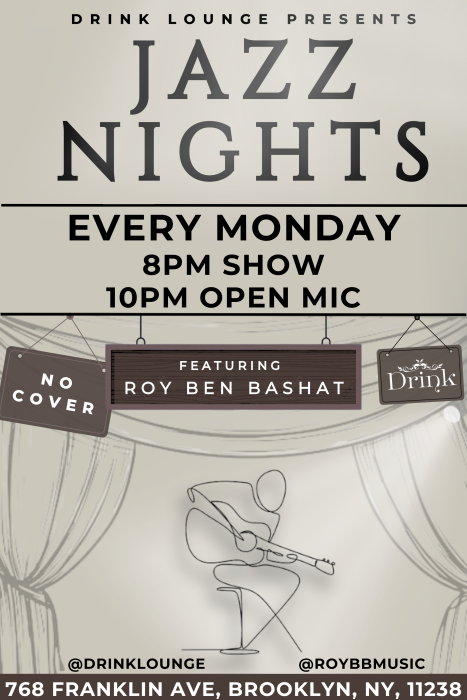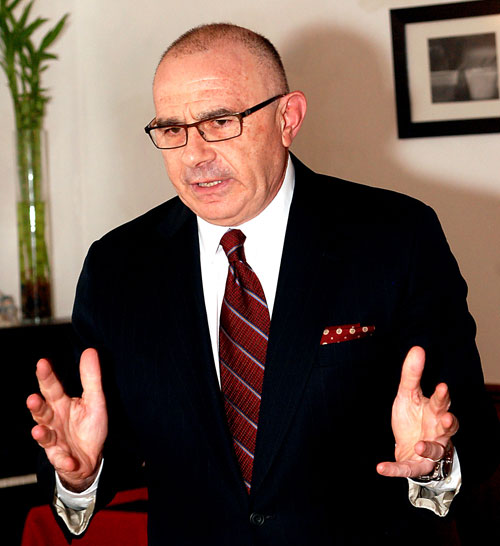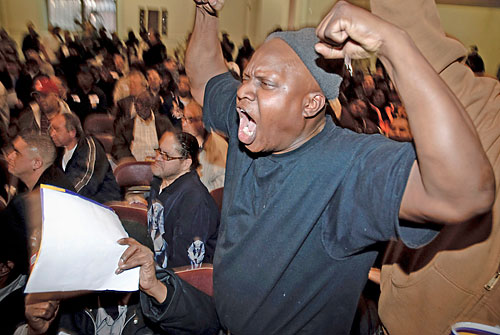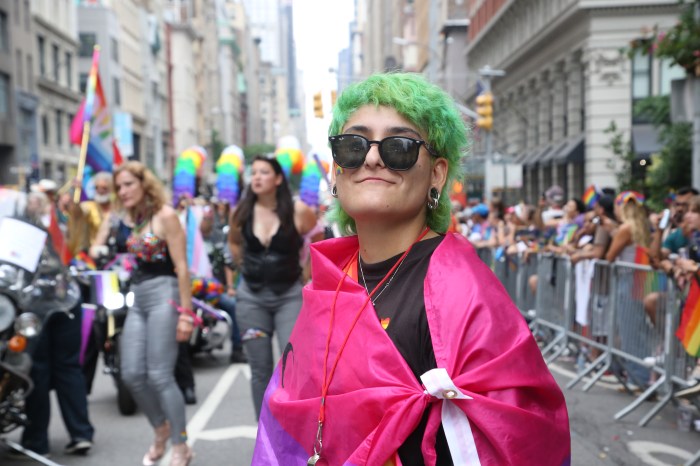Striking entertainment industry writers gathered in Greenpoint on Wednesday, blocking access to a local production lot and forcing a filming shutdown of popular shows and films.
About 75 unionized writers gathered at the Cine Magic East River Studios at 11 Kent St., where the Showtime series Billions starring Paul Giamatti is in production, as part of a strike from the Writers Guild of America that began on May 1.
Nationwide, writers are striking as they work with the Alliance of Motion Picture and Television Producers to agree on a new contract — with both sides being reportedly far apart on a new deal.
“What we’re asking for is basically a living wage,” said Sasha Stuart, a writer for the Netflix shows Fight for America, The Fix and Undivided ATTN. “This strike has already cost [studios] likely more money than it would’ve taken to settle with us. We’ve managed to delay or pause production on American Horror Story, Evil, Severance, Hello Rider, American Sports Story and on a few different movies.”
There are many factors at the heart of the dispute, including the prevalence of streaming services cutting into financial residuals that are typically paid to writers when their work reruns on linear TV, as well as the declining number of creatives being hired for a given show. Writers are also looking to halt the use of artificial intelligence that could potentially be used in lieu of humans on some projects.
Almost all high-profile writing has stopped for big-name movies and TV shows, and that has led production to shut down on many projects completely, even if scripts are already done — either as actors and directors stand in solidarity, or because the projects simply cannot continue without writing being done during filming.
Protestors have blocked access to major studios in New York, including NBC’s at 30 Rockefeller Plaza, as well as Times Square Studios owned by the Walt Disney Company and HBO’s east coast-home at Hudson Yards.
The Williamsburg lot where Stuart and her colleagues continued their strike has seen filming of shows like Homeland, Ray Donovan, and The Knick.
The union estimates that studios are losing approximately $30 million per day.
“What has been happening is that our writer’s rooms are getting smaller,” said Stuart. “Studios are hiring writers for fewer weeks. So, fewer people are getting paid and they’re getting paid less. We’re seeing longer gaps between jobs, which means a lot of people are losing their health insurance. They can’t pay their rent, they can’t pay their mortgages, they have to leave the industry, and go get other jobs. Those who are trying to stay in the industry have two or three other jobs in addition to trying to be a writer. So, what our proposals recommend is a way to prevent that from happening and make sure that everybody who wants to be a TV and film writer has a real sustainable career.”
The negotiation started in 2020, but the COVID-19 pandemic’s health hazards, along with concern for their audience’s mental health and the shortage of employment, discouraged many writers to strike then.
“A lot of these issues were bubbling up, but we honestly felt for the greater good,” said Stuart. “People really needed our entertainment. We got some really important deals, we got paid parental leave, which kept the discussion peaceful, but the studios haven’t come back to the bargaining table since. Whenever they’re willing to talk, we are ready to hear their thoughts.”
Writers say they’ve seen a lot of support across the board. Members of other unions including warehouse workers from the International Brotherhood of Teamsters and the Screen Actors Guild (SAG-AFTRA), which represents over 100,000 film and television performers, have joined the protests across the city. Unions of actors and directors have also announced their own strike in the upcoming months.
“Solidarity is high,” said Stuart. “We’re really feeling like we are part of the larger labor movement and that has been really heartening. I think that has given us a lot of strength. We are having great turnouts at our pickets. People are ready to take action.”






















